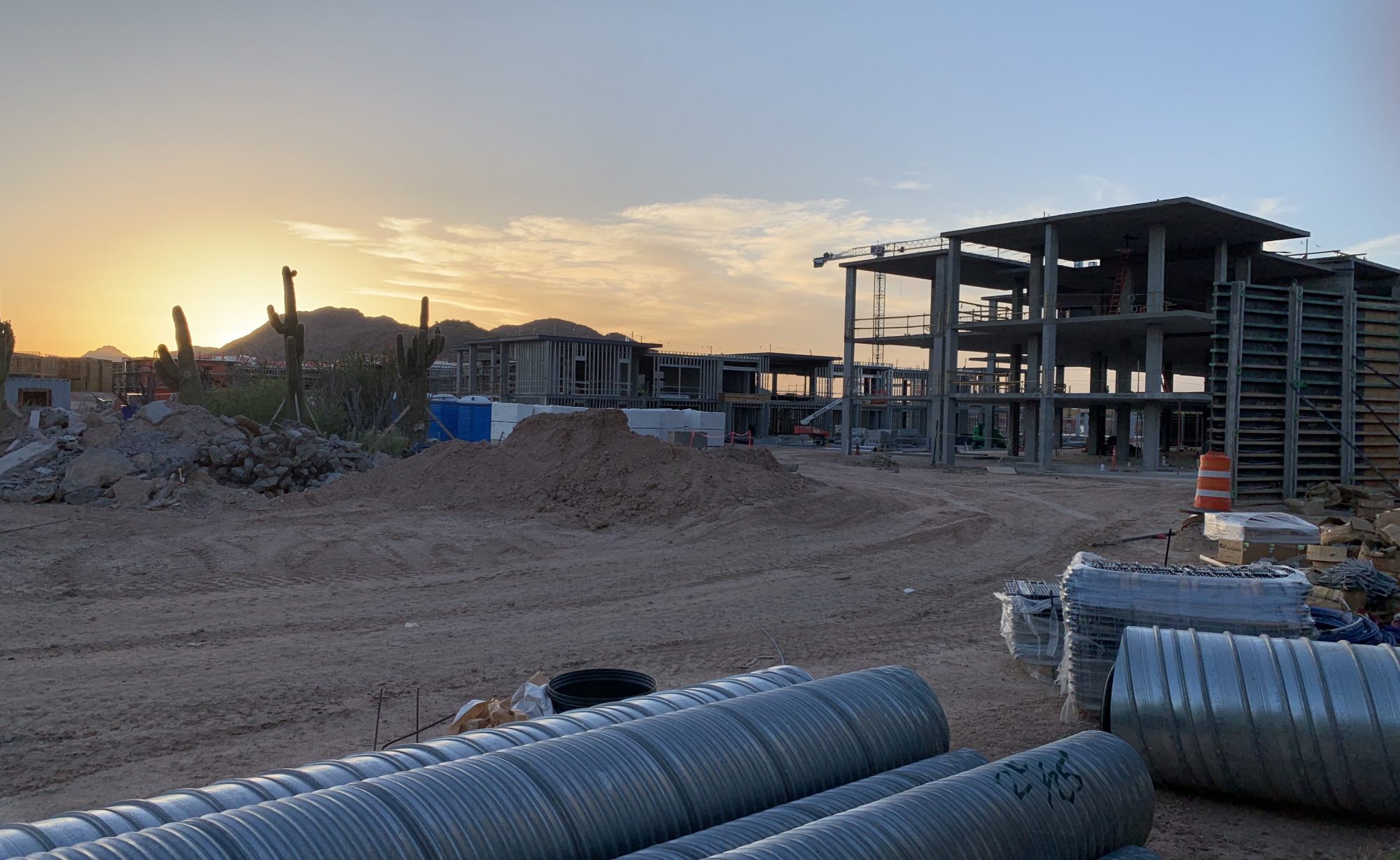 It is well-established Arizona law that a warranty of habitability and workmanship is implied into all residential construction contracts. In Sirrah Enterprises, LLC v. Wunderlich, 242 Ariz. 542 (2017), the Arizona Supreme Court recently decided “whether the successful party on a claim for breach of the warranty qualifies for an attorney-fee award under either a contractual fee provision or A.R.S. § 12-341.01.” The Court held that the warranty is an imputed term of the construction contract, such that the prevailing party on a claim for breach of that term qualifies for an attorneys’ fee award under a controlling contractual fee provision or § 12-341.01.
It is well-established Arizona law that a warranty of habitability and workmanship is implied into all residential construction contracts. In Sirrah Enterprises, LLC v. Wunderlich, 242 Ariz. 542 (2017), the Arizona Supreme Court recently decided “whether the successful party on a claim for breach of the warranty qualifies for an attorney-fee award under either a contractual fee provision or A.R.S. § 12-341.01.” The Court held that the warranty is an imputed term of the construction contract, such that the prevailing party on a claim for breach of that term qualifies for an attorneys’ fee award under a controlling contractual fee provision or § 12-341.01.
Background
The dispute in Sirrah arose from a contract to build “a basement through exterior walls” at an existing home. After the contractor performed the work, the homeowners refused to pay a portion of the contract sum because of alleged construction defects.
The contractor sued for the unpaid balance of the contract sum, and the homeowners counterclaimed for, among other things, breach of the implied warranty of workmanship and habitability. At trial, the jury found in the contractor’s favor on its claim and awarded it $31,374.00. But the jury also found in the homeowners’ favor on their warranty claim and awarded them $297,782.00.
On this record, the trial court determined that the homeowners were the prevailing parties and awarded them attorneys’ fees pursuant to a fee provision in the parties’ contract and § 12-341.01. The contractual provision on which the court relied provided that if either party “is required to retain the service of an attorney to enforce any term or provision of this Agreement, the prevailing party shall be entitled to and the losing party shall pay all expenses and costs including reasonable attorney’s fees incurred by the prevailing party.” The court of appeals affirmed the fee award based on the parties’ contract.
Discussion
Under the implied warranty of workmanship and habitability, “a residential builder warrants that its work is performed in a workmanlike manner and that the structure is habitable.” In Sirrah, the contractor argued before the Supreme Court that the implied warranty of workmanship and habitability was not a “term or provision” of the subject contract. The contractor asserted, instead, that the warranty was imposed by law irrespective of the contract, such that the warranty could not constitute a contract term or arise from a contract. The homeowners, on the other hand, responded that the law imputed the implied warranty into the parties’ contract, making (1) “the [w]arranty a ‘term or provision’ of the contract,” and (2) the fee award proper.
The Court rejected the contractor’s argument based primarily on the Court’s earlier decision in Woodward v. Chirco Construction Co., Inc., 141 Ariz. 514 (1984). In short, the Court noted that its holding in Woodward had previously established that the implied warranty of workmanship and habitability: (1) “arises from the contractual relation between the builder and the purchaser;” and (2) is imputed by law “into the contract for the construction and sale of the residence.” The Court also pointed out that its subsequent decisions in Lofts at Fillmore Condo. Ass’n v. Reliance Commercial Constr., Inc., 218 Ariz. 574 (2008) and Sullivan v. Pulte Home Corp., 232 Ariz. 344 (2013) reaffirmed Woodward’s holding concerning the implied warranty.
Given its determination that the implied warranty of workmanship and habitability is an imputed term of residential construction contracts, the Court held in Sirrah that the homeowners were entitled to an award of their attorneys’ fees under the subject contract or § 12-341.01.
Conclusion
Sirrah establishes that claims concerning the implied warranty of workmanship and habitability arise from or involve terms of residential construction contracts for purposes of attorneys’ fees awards. It is important to note, however, that Sirrah does not guarantee that a party who prevails on such a claims will be awarded all of its fees. The trial court still must address the other issues that come into play with attorneys’ fee awards, such as: (1) the reasonableness of the fees being sought; and (2) for fee awards based solely on § 12-341.01, the permissive nature of the statue.
In any event, the clarity that Sirrah brings to the recoverable nature of attorneys’ fees in the context of implied warranty claims, will likely affect future litigation in two ways. It should embolden homeowners with strong implied warranty claims, while at the same time dissuading homeowners with weak or marginal claims.
